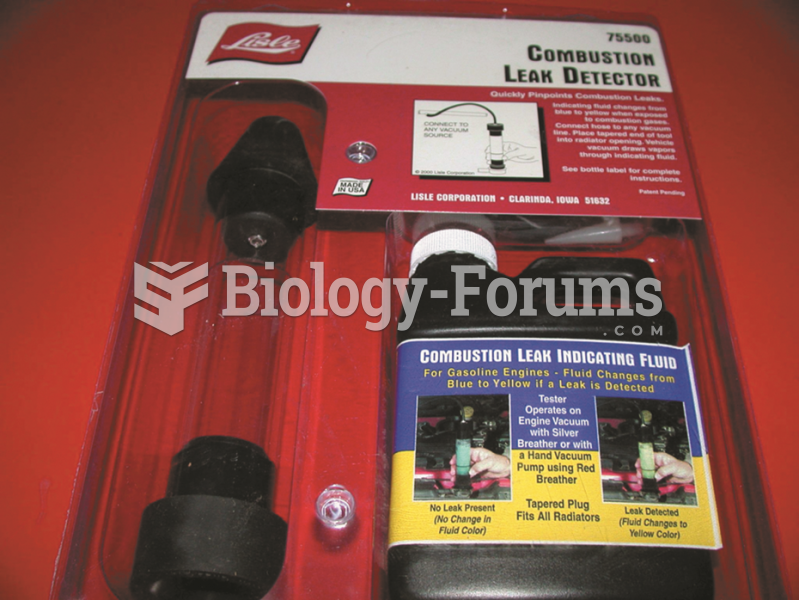|
|
|
People who have myopia, or nearsightedness, are not able to see objects at a distance but only up close. It occurs when the cornea is either curved too steeply, the eye is too long, or both. This condition is progressive and worsens with time. More than 100 million people in the United States are nearsighted, but only 20% of those are born with the condition. Diet, eye exercise, drug therapy, and corrective lenses can all help manage nearsightedness.
The B-complex vitamins and vitamin C are not stored in the body and must be replaced each day.
In 1835 it was discovered that a disease of silkworms known as muscardine could be transferred from one silkworm to another, and was caused by a fungus.
Alcohol acts as a diuretic. Eight ounces of water is needed to metabolize just 1 ounce of alcohol.
Asthma cases in Americans are about 75% higher today than they were in 1980.
 Plasma protein binding and drug availability: (a) drug exists in a free state or bound to plasma pro
Plasma protein binding and drug availability: (a) drug exists in a free state or bound to plasma pro
 A tester that uses a blue liquid to check for exhaust gases in the exhaust, which would indicate a ...
A tester that uses a blue liquid to check for exhaust gases in the exhaust, which would indicate a ...





